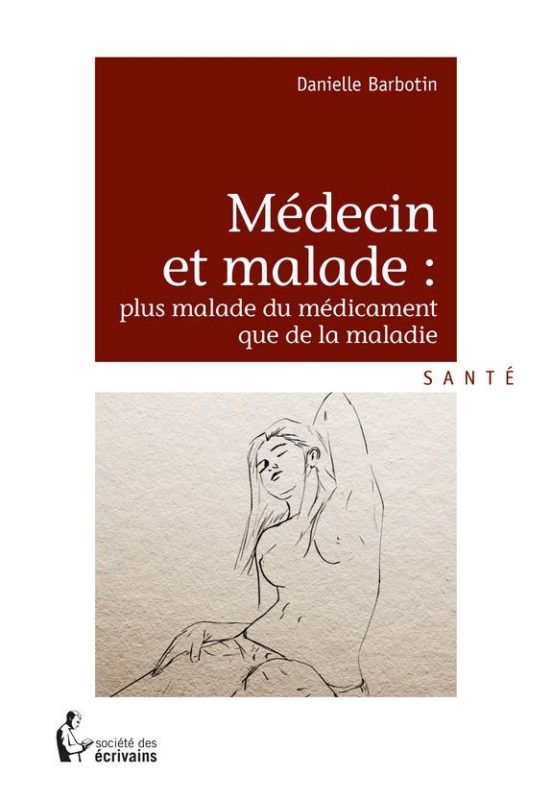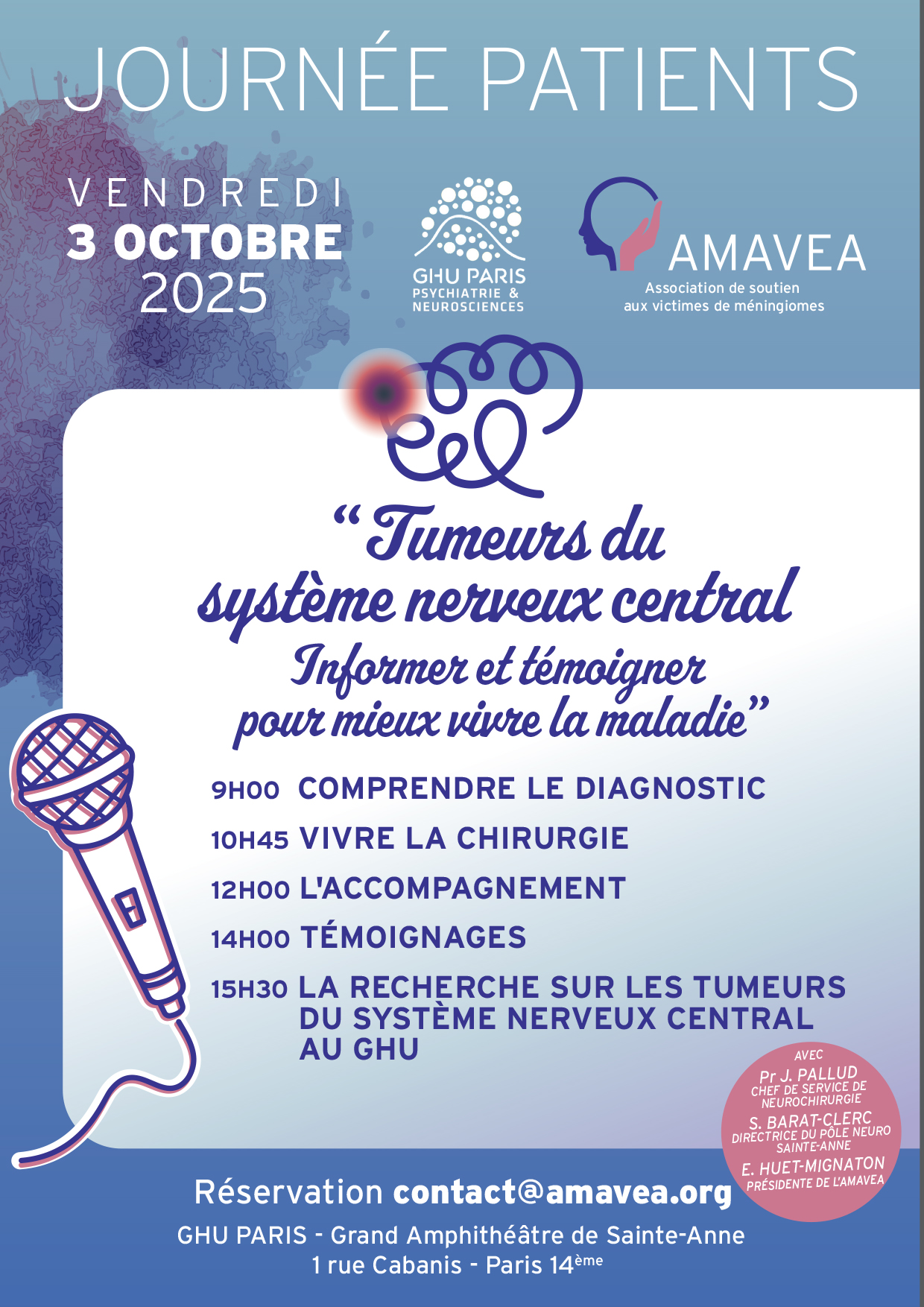Luteran and lutenyl must be maintained. These drugs have a real interest, but the prescription conditions must be redefined.
Important: the text in italics is that of the president of the association, Emmanuelle Huet-Mignaton
There will never be an ECR (randomized controlled trial) because only laboratories can do them, because of their cost. They are planned for the development of drugs and the request for MA. The laboratory awaits a return on investment , even if it can shock, it is normal they are industrial and commercial companies, they are not philanthropic. Their goal is to highlight a profit . The undesirable effects are often minimized, the laboratories say that they are not required to seek them, the law specifies if the scientific knowledge of the time makes it possible to detect them, for example if we know that the effect is explained by the mode of action . Most new drugs are called "well tolerated" even if there have been deaths. Medicine teachers are starting to be moved, they consider that it is harmful to doctor-malade confidence. The rare effects or which are revealed in the long term cannot be detected during ECRs , hence the importance of pharmacovigilance, it is used to point out the effects passed unnoticed.
For the drugs that interest us, public research can never make ECR for a rare effect, difficult to highlight, including pathophysiology ( progesterone receptors in some women in tumors, but we do not know who is at risk, that's the major problem ... ) is not known. It would take a very important study, there are no credits for this.
Laboratories will never do so for other reasons either. Why would they do it, at a significant cost in order to expand the indications of a drug, while these drugs are largely prescribed out of AMM, reimbursed . Being prescribed out of AMM, doctors take full responsibility, they thus unload the laboratories. For example, if they asked for an AMM for contraception, they would have to study important, over a long time to obtain an indication for which the reimbursement would be unlikely to be granted, it is an important element for long -term treatments, and if they were, it would be at a low price. In general, contraception is little reimbursed, and when it is at a very low price. Laboratories have even less interest since the risk of meningioma is known.
The requirements of prescriptions will be defined , but if the existing conditions were met, the risks would not be zero but clearly less. It is not the same thing to prescribe a treatment 10 days out of 28 for 3 months as 20 days of long -term 28, in this case the effects are not known because it was not the conditions of the ECR which allowed the AMM.
The rules of prescription to be observed are:
- Information, it is compulsory, it must be complete, that is to say concern all the effects, even exceptional.
- The assessment of the benefit/overall risk but also and above all individual:
Is it better, for a precise patient, depending on her age, her desire for pregnancy or not, to operate it (what operation), or prescribe long-term medical treatment. Surgeons will tend to advise the operation, doctors rather medical treatment. It's not normal.
- The patient's participation in the choice of her treatment :
When several treatments are possible, the patient must be informed of all the advantages and disadvantages of each method. The doctor must give his opinion, justify it and the patient gives his preference, it is the so -called informed choice .
- The notification in pharmacovigilance of undesirable effects not reported. We know that she does not work. It is up to the doctor who notes the effect, to report it, or they tend to think that it is the prescribing doctor. We go around in circles. It is however compulsory, but as there is no sanction nothing changes ( specifically, in the case of the progestins that interests us, I discovered this recently: the neurosurgeons, who are therefore the doctors who noted the effect, did not do so for a simple reason: for them, that women do more meningiomas than men was normal, by their constitution!).
- Outside AMM prescription is not prohibited but it is very supervised . It must be even more cautious because there is no BCH, that the effects are not well known in this indication. It is only possible when there is no drug in the same indication. The patient must be informed. The “out of AMM” precision must appear on the prescription, it is not refundable .
The patient thus gives his agreement after information (it is in this sense that the association asked for the certificate of information before any prescription of Androcur, co -signed doctor and patient, and necessary for the issuance of the drug).
None of these rules are really applied. It would have been interesting to recall them and demand that they be applied.
The level of evidence :
The most reliable level of evidence is the ECR. There may be biases. Effects may not appear: the absence of evidence is not proof of lack of effect.
Consensus is not a level of evidence, it is an agreement between experts from the same specialty, which have all been trained in the same way, which have the same reasoning.
Observational studies are small studies done by medical teachers, they are interesting when there is no BCR, especially if they answer a specific question. For a rare effect, are they interesting?
Recommendations of good practice must be developed, they exist in oncology or for chronic diseases. They must be done between surgeons, gynecologists, neurologists and neurourgian s.
In France, if the progestins are much more prescribed than elsewhere, it is because they are prescribed when they are not essential . For contraception, there are many possibilities today, it is very surprising that none is suitable ( from the way to do also so that contraception is not the sole charge of women, when possible ).
Progestatives must be reserved for pathologies that are difficult to treat . Endometriosis is part of it. For years, its importance has been denied. Today the objective is, above all, to preserve the possibility of pregnancies, sometimes whatever the desire of the patient. The treatments are often very heavy, without assessment of the benefit/risk ( I know something !!! ) We must be careful that prohibiting the progestins would amount to developing the use of even heavier treatments, I think of the LH/HR analogues that patients know well, they all had. They should only be prescribed for a limited period, it is often exceeded.
If the progestins are essential, it is necessary to define what monitoring to set up: MRI? at what rate?
It is undoubtedly necessary to give a wider part to surgery , especially after pregnancies, even radical (hysterectomy + ovariectomy) on the condition of prescribing a hormone replacement treatment with sufficient dose , for a sufficient period, but there too there is a lot of abuse, we above all developed the negative effects, they were considerably exaggerated. When will we finally assess the real benefit/risk of these treatments ?
To say, for example, that there are no natural hormones, they are always drugs, it's true but it allows you to know what we are talking about, the benefit/risk is very different from one treatment to another: natural progesterone (even if it is improper) and synthetic progestins. Doing such a coarse amalgam is not to make this difference. The treatments prescribed in gynecology have often been victims of such amalgams: we are talking about hormones in general, they are often demonized, some have very important beneficial effects, they are essential.
Of course, the ANSM must alert but personally, I think that gynecology teachers must commit to informing. In all the health crises, the effects were known and often, in good faith, the doctors said that they did not know that it was so important (exactly what the gynecology Professor told me that was honest with me, the others made the dead: "We knew it existed, but we thought it was so rare, that it was not necessary to speak about it. With the metaphora of" when you can, you can die, You take a medication, you can die, where is the problem? "Aside that many gynecologists still deny the risk, from the feedback that we have patients, because they say that all this is very overvalued and the ANSM is covered). They must inform by making risk presentations in all gynecology congresses, in all gynecology journals. So you have to trust them.
If nothing changes, I think that patients have a very important power by initiating procedures against doctors who do not respect the rules . If they do not want to change their prescriptions, their insurance will force them to do so. This is what happened with coeloscopies, colonoscopies. Doctors who did not inform, even without fail, were sentenced. Insurers, threatening them not to cover them anymore, made them change their attitude. Today everyone informs and put documents, not always very understandable but that is another problem .
Thanks to Danielle for her expertise and clear text. The other gynecologists contacted since last June did not follow up on our emails or letters.
Danielle has published a book " Doctor and patient: Deller of the medication than in illness":
the title of her book proves that, although doctor, that did not prevent her from being the victim of a medication.
Order your book: https://www.societedécécécrivains.com/medecin-et-malade-plus-malade-du-medicament-que-de-la-maladie.html/
Learn more: https://danielle-barbotin.societedécritivans.com/
Find our other articles here






